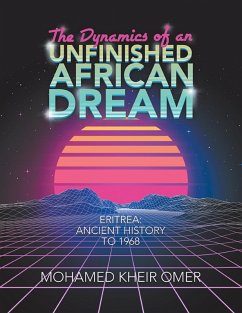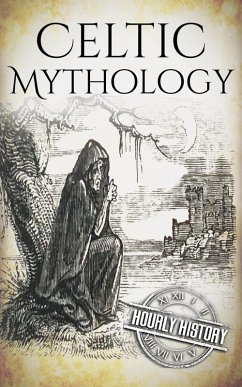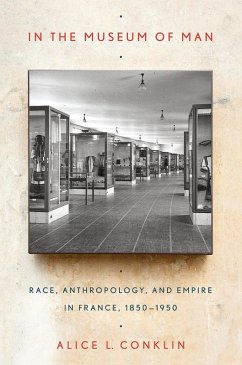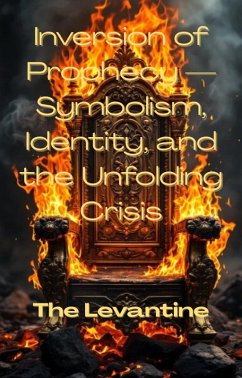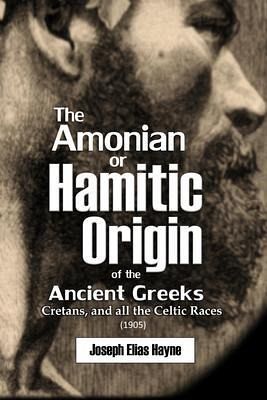
The Amonian or Hamitic Origin of the Ancient Greeks, Cretans, and all the Celtic Races (1905) (eBook, ePUB)
Versandkostenfrei!
Sofort per Download lieferbar
3,99 €
inkl. MwSt.
Weitere Ausgaben:

PAYBACK Punkte
2 °P sammeln!
"Joseph Hayne purported to show that blacks created Greek and Cretan civilizations, and that the British empire owed its greatness to the Negro ancestry of the Celts." -Alan Keyes, "Our Character, Our Future" (1996). "The Rev. Dr. Joseph E. Hayne, a colored clergyman and physician of Brooklyn, is the author of an interesting pamphlet designed to prove that the ancient Greeks, and all the Celtic races as well, were descended from the Amonian or Hamitic race. His arguments are forcible." -NY Times Book Review, 1905"The Bible story touching my race, and its wonderful history, can never be overthr...
"Joseph Hayne purported to show that blacks created Greek and Cretan civilizations, and that the British empire owed its greatness to the Negro ancestry of the Celts." -Alan Keyes, "Our Character, Our Future" (1996). "The Rev. Dr. Joseph E. Hayne, a colored clergyman and physician of Brooklyn, is the author of an interesting pamphlet designed to prove that the ancient Greeks, and all the Celtic races as well, were descended from the Amonian or Hamitic race. His arguments are forcible." -NY Times Book Review, 1905
"The Bible story touching my race, and its wonderful history, can never be overthrown by the foolish hypothesis of any class of men, be they scientists or theologians," writes African-American clergyman Joseph Elias Hayne in introducing his 1905 book "The Amonian or Hamitic Origin of the Ancient Greeks, Cretans, and all the Celtic Races."
As white men had been investigating and discussing the "black man," and his origin, his capacity and defects for hundreds of years, and Hayne felt that "it is certainly timely for the average 'black man' to look up the pedigree of himself and race."
The last four chapters Hayne's groundbreaking book on race offer striking evidence that Greeks and Celts were descendants of Ham, and that these Hamites were the founders of Greek Civilization, the British Empire, and Christianity itself. The first six chapters offer a favorable comparison of blacks with whites.
Regarding the Greeks, Hayne notes that "we need not hereafter wonder why the Greeks became such a notable people in literature, art and science, when we look at their ancestors. Not a single one of the branches of the Amonian or Hamitic race, in ancient times, failed to impress the world of mankind with their wonderful achievements in all the walks of life. We only need to point to the pages of ancient history and the whole story like a beautiful romance is at once told."
As for the Celts, upon his demonstrating their descent from Ham, Hayne explains that "we can now readily account for the great wisdom, the skillful workmanship in every branch of art, the wonderful achievements of the several branches of the Celtic peoples in Europe, their magnificent developments of science and literature on both sides of the Atlantic Ocean, their giant progress in industry, and in enormous wealth, for in all these their ancestors were particularly famous, in which they led the world."
"The Bible story touching my race, and its wonderful history, can never be overthrown by the foolish hypothesis of any class of men, be they scientists or theologians," writes African-American clergyman Joseph Elias Hayne in introducing his 1905 book "The Amonian or Hamitic Origin of the Ancient Greeks, Cretans, and all the Celtic Races."
As white men had been investigating and discussing the "black man," and his origin, his capacity and defects for hundreds of years, and Hayne felt that "it is certainly timely for the average 'black man' to look up the pedigree of himself and race."
The last four chapters Hayne's groundbreaking book on race offer striking evidence that Greeks and Celts were descendants of Ham, and that these Hamites were the founders of Greek Civilization, the British Empire, and Christianity itself. The first six chapters offer a favorable comparison of blacks with whites.
Regarding the Greeks, Hayne notes that "we need not hereafter wonder why the Greeks became such a notable people in literature, art and science, when we look at their ancestors. Not a single one of the branches of the Amonian or Hamitic race, in ancient times, failed to impress the world of mankind with their wonderful achievements in all the walks of life. We only need to point to the pages of ancient history and the whole story like a beautiful romance is at once told."
As for the Celts, upon his demonstrating their descent from Ham, Hayne explains that "we can now readily account for the great wisdom, the skillful workmanship in every branch of art, the wonderful achievements of the several branches of the Celtic peoples in Europe, their magnificent developments of science and literature on both sides of the Atlantic Ocean, their giant progress in industry, and in enormous wealth, for in all these their ancestors were particularly famous, in which they led the world."
Dieser Download kann aus rechtlichen Gründen nur mit Rechnungsadresse in A, D ausgeliefert werden.




